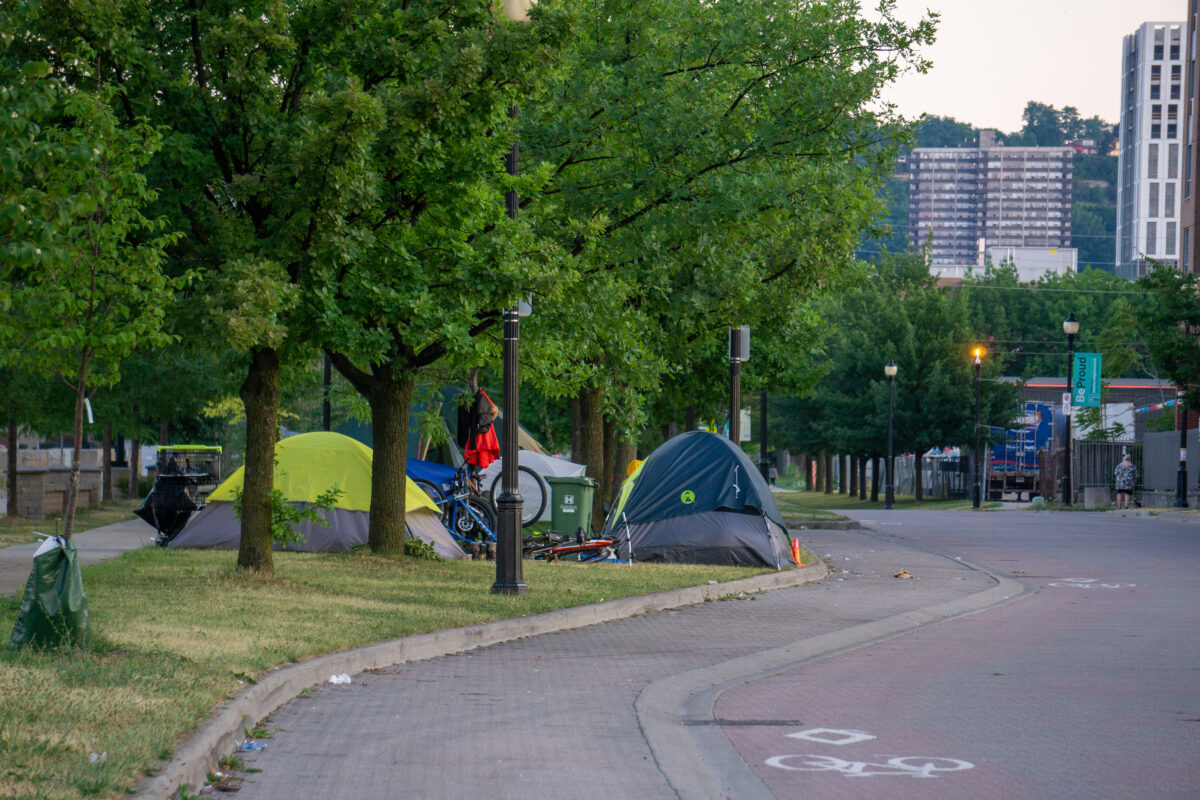One day in Sarnia encapsulates the challenge of managing encampments for Ontario’s municipalities.
On May 6, 2024, Sarnia City Council hold a special council meeting, heard public delegations calling for the removal of a problematic encampment, went into closed session for legal advice, emerged and informed the public that removing the encampment would violate the Charter of Rights and Freedoms, Sarnia’s Chief of Police declared they will not remove the encampment absent a court order, and then mere hours later, an attempted murder occurred at the Rainbow Park encampment.
May 6: Special Council Meeting, Residents Demand Removal of Encampment
On May 6, Sarnia’s City Council held a special meeting on the issue, hearing public delegations, and then went into closed session to receive legal advice.
People who live near the Rainbow Park encampment called on their municipal council to remove the encampment, citing crime, disturbances, public drug use, and the impact on the ability of children to use the park.
In closed session, Sarnia Council received legal advice stating that, in light of recent Ontario Superior Court decisions, removing the encampment will likely be found to be a Charter violation.
Sarnia’s Council voted 6-3 to accept this advice.
To help the public understand the legalities of why Ontario’s municipalities cannot remove encampments, Sarnia Council took the rare step of waiving its legal privilege and released the legal advice it received.
Written by John Mascarin, one of Ontario’s top municipal lawyers, the advice states, “the constitutional ‘right to shelter’ under section 7 of the Charter is engaged where there is a lack of available and truly accessible indoor shelter space, which appears to be the situation that the City is currently faced with. The onus would be on the municipality seeking to evict encampment residents to demonstrate that there is sufficient, accessible shelter space.”
May 6: Attempted Murder at the Encampment
Only a few hours following the Council meeting, there was another incident at Rainbow Park, an attempted murder. A 33-year-old was charged.
Sarnia Police Told Council in Advance of May 6, Absent a Court Order, They Would Not Clear the Encampment
Before the May 6 council meeting, Sarnia’s Chief of Polic informed the City’s Chief Administrative Officer that police would not enforce trespass orders without a Superior Court injunction.
Police Chief Derek Davis shared an excerpt of his letter a few days later, on May 15.
“The Service does not intend to make arrests or physically remove encampment residents in order to enforce the Bylaw or to clear the encampment of residents and property absent a court order authorizing the Service to take such action,” Chief Davis writes.
Situation the Same Across Ontario
Sarnia’s situation is not unique, urban municipalities across Ontario’s are trying to manage encampments in the absence of action by the provincial government.
Ontario’s Superior Court has ruled that people can encamp until there are shelter spaces that meet the needs of those with addictions and/or relationships.
Municipalities cannot provide for those needs.
The provincial government is unwilling to fulfill its constitutional mandate to provide social services.
Meanwhile, the situation facing those living in encampments continues to be dire as no municipality wishes to be the first to create sanctioned tent encampment sites.
The unstated concern is that providing a better level of service will attract new clients from neighbouring municipalities, increasing the costs borne on the local property tax levy.
Local Politicians Getting the Blame for Provincial Indifference
Other provinces are responding to housing and homelessness with provincial strategies and coordination.
Under Conservative Premier Mike Harris, Ontario disbanded its provincial housing agency in 1998 and mandated municipalities to operate the non-formerly provincial housing stock.
Municipalities lack the resources to build new housing and struggle to maintain the housing they inherited. The result is
Nobody at Queen’s Park is motivated to change the failing status quo.
Municipal councillors are accessible, they have to be in their communities, and with encampments in parks, people are blaming them for encampments.
Provincial politicians hide at Queen’s Park.
There is no political pressure on the Province to resume its responsibility for social housing.
The Conservative Doug Ford government is running a large deficit, while the Provincial treasury is being emptied and not replenished.
The Provincial Treasury is expected to have a $9.8-billion deficit this year.
The Conservative Doug Ford government continues to cut provincial revenues (ending vehicle license plate revenue fees, for example) while increasing spending.
At the same time, the Ford government is giving away billions of dollars on corporate incentives and contract provisions. Just last week, it gave the multi-national companies that own The Beer Store $225 million.
The Province isn’t going to save Ontario’s municipalities; people will continue to blame their local councillors and mayors for decisions made in Queen’s Park, and encampments will remain with us.
A collective shame.
Production Details v. 1.0.0 Published: June 2, 2024 Last updated: June 2, 2024 Author: Joey Coleman Update Record v. 1.0.0 original version

